Dr. Paulius Mui is a first-year family medicine resident in Virginia, and a long-time listener (since before med school!). He wrote to Dave not long ago because he had published a game called Table Rounds. It’s a game he and his friends in med school had made up, and now he’s working to bring it into the world as an actual product.
Paulius also gives his advice to Joyce, who’s about to start her residency in Emergency Medicine, and discusses his first-year as a resident beginning while the pandemic raged.
How’d we do on this week’s show? Did we miss anything in our conversation? Did we anger you? Did we make you smile? Call us at 347-SHORTCT anytime or email theshortcoats@gmail.com. It’s always a pleasure to hear from you!
364
Gamifying Med Ed
Dave Etler: [00:00:00]
Welcome back to the Short Coat Podcast. a production of the University of Iowa
Carver College of Medicine. I’m Dave Etler joining me in the studio and in our
live stream on Facebook’s. The Short Coat Student Lounge is a fine slate of
medical student co-hosts, say hello to an illustrious M4, Joyce Wahba.
Joyce Wahba: [00:00:50]
Hey everyone.
Dave Etler: [00:00:51]
Over there is a fine young M1 who’s
really going places. AJ Chowdhury.
Hello. Next to him is his virtually identical twin and a fascinating M1
himself. Alex Belzer. Howdy. Howdy. Holy smokes. A new co-host is entered the
chat it’s Nolan Redetzke. Hello. But if
you thought that was all that I had to offer you today on today’s show, I would
ordinarily say isn’t that enough for you listeners, but yes, I do have more,
Dr.Paulius Mui is a first year family
medicine resident now in Winchester, Virginia. Is that right? That’s right. I
did a little research. He’s the co-inventor of a new game called table rounds.
Which I think you’re going to like short coats.
Hello. Thank you for, thank you for joining us on the show.
So we’re gonna play this game a little bit first. The story I want to get into
the story, you sort of the origin story
of this game. Is that you and your med student friends sort of invented
this game while you were, a med student at, , BU Boston university VCU.
Okay. I don’t know why I thought it was B U I F I swear to
God. I looked it up. I think he’s actually, I found your, I found your resident
page on the website and I think it says, BU dude,
Paulius Mui: [00:01:57]
I went to BU for undergrad
Dave Etler: [00:02:00]
okay.
So I read it wrong.
Joyce Wahba: [00:02:03]
You tried though. It’s fine
Dave Etler: [00:02:04]
I do try. I do try to do my job. Yeah. It sounds like your effort was there.
Yeah. Not focused. I think you said , you sort of invented
or came up with this game while you were in med school…
Paulius Mui: [00:02:15]
Yes. Yes. So you know, thanks for having me on the show. I’ve actually listened
to you all since, um, at least
Dave Etler: [00:02:21]
September 2016, I went back and looked through my emails in the first time you
emailed me was September of 2016.
Paulius Mui: [00:02:28]
So this is even before. I knew for certain that I was going to be a doctor. So,
, yeah, I’ve been following along your work for some time and it’s been really
exciting now, full circle, kind of crazy.
Dave Etler: [00:02:41]
Now you’re now you’re the real thing and you’re on the show. I love it. This is
great. So yeah. How did you come up with this game?
Paulius Mui: [00:02:46]
Well, I mean, it was harder to not make the game, I think, than actually make
it and share it with my colleagues. It
really came out of how we studied, and with my friends and the study group. I
think it was step one dedicated period when it really clicked.
And, I think kind of realizing, going through medicine and
medical school, realizing that, medicine is just a lot about identifying
connections that seem to be hidden, and there are all sorts of clues that the
patient tells you and you’re supposed to kind of piece them together and make the connections visible for others.
And I can get into kind of more of the maybe not the so
exciting part, but you know, like my friend Graham, he would quiz me about
different things. For example, Dave, we’re going to get a little medical here.
Dave Etler: [00:03:34]
I can handle it. I’m going to gird my loins.
Paulius Mui: [00:03:38]
Girded. So, you know, he would, Say.
Okay. So tell me what you know about cellulitis. Like what’s
the first thing that comes to mind and I don’t know. I think of like an
antibiotic, like clindamycin and , he’s like, okay, what else is associated
with clindamycin? And I would say, okay, maybe C-diff. Okay. And then he’s
like, what about C diff?
And then I would say a vancomycin and then we just kind of
go down the path of one thing makes you think of another thing. And then we’d
kind of see how far we can take each other’s knowledge. And so that’s really
the idea that, you know, there are these things that you’re, you know, you
think of one thing and then it’s connected to the other and we’ve built off of
that and created this, this game.
Dave Etler: [00:04:16]
I don’t know about you guys, but I like this approach because , it seems kind
of an obvious approach because a lot of med school is about memorization, but
that’s not where the real sort of learning,
is done. Right. I mean, that’s just basic sort of surface level.
Paulius Mui: [00:04:29]
Yeah, exactly. And I mean, I think, you know, this is, certainly a game in a way to play.
But really, I think
it’s more of a symbol for why we. Actually took the effort to produce it and
make it available and go through some of the steps that are not just purely
fun. Cause it , took, , a lot of time to make sure that it’s a good experience
for everybody is because, we’re really hoped to nudge the culture of medical
education to create a space for playfulness and human connection.
In a place that I
think doesn’t welcome it all the time. I think just broadly speaking, obviously.
That’s great. I like that. Yeah. every medical school experience is different
for everybody, but, and so this is kind of coming from my experience and, you
know, medical education is full of amazing people.
But some things exist
that I think could be improved and whether this is just. kind of leftover
or, unintended consequences of
well-meaning efforts or just historical inertia, but they’re definitely a few
things that. Could be changed about the way our training happens in terms of it
matching up with the reality of practicing medicine.
And I think that our game really tries to bridge the gap
between what’s what’s not available right now in terms of developing some of
these more emotional intelligence skills.
Dave Etler: [00:05:49]
Any reactions to that, you guys?
AJ Chowdhury: [00:05:51]
That sounds very high yield.
Alex Belzer: [00:05:55]
I’m going to go, I’m going to go ahead and file that in the good take file
folder,
AJ Chowdhury: [00:06:00]
indeed.
Dave Etler: [00:06:02]
So you had this idea, and what was it
like to bring. An idea from something you do with your buds to a physical product,
I’m kind of always fascinated by this, by this process because it’s not, it’s
not just like have an idea, make it profit.
Paulius Mui: [00:06:18]
Yeah, that’s true. Exactly. And I mean, I think this is not something that is
going to make us wealthy or, have us,
pay off our student loans.
I think this is just a fun thing that hopefully we’re not
going to lose money and be net neutral or so in the end. , we launched officially and made it available
for sale early in 2021, but have been working on it. Really, I think for about two years now.
And so we first developed the concept for the game and then
tested it with our friends and refine the rules. And then we , tested it some
more, got feedback and went through a lot of iterations and kind of handmade
the cards ourselves. First we created
everything by hand. Then we take it to the next.
Phase of printing it at Kinko’s. , then when things were
kind of evolving, as we were expecting, you know, we ordered some prototypes
research, the different companies they could place the order with, and then
kept testing it. And then eventually when we
felt comfortable that this is a. Worthwhile pursuing, you know, we took
somewhat of a risk and, bought an
inventory and, , created a website, you know, like a whole production, I think.
And I don’t, I honestly don’t know why it happened. But it did.
Dave Etler: [00:07:34]
Yeah. Because I was going to ask, like, what was that signal that you were
like, Oh yeah, This, this has legs. I can, we can do this. I mean,
Paulius Mui: [00:07:40]
so, because I think, I believe in what it represents. So, so there, you know, I
didn’t get into the specific issues that are wrong with, I think, medical
training, but I’m happy to highlight a couple of times do it.
Dave Etler: [00:07:53]
Nope. There’s nothing
Paulius Mui: [00:07:54]
wrong with that actually. You know, I’ve only, I only know my experience
and, the few people that I know outside
of my medical school who have gone through the same thing, and I’ve heard it
echoed, but if you guys feel that this is not really true to you, let me know. So what I think, for example,
there, there are a couple of things.
The, biggest thing
that stands out to me is that the opportunity cost of not studying in medical
school is huge . I felt , the need to, to try to study whenever I can even like
when exercising, I try to listen, you know, try to kind of do something
medically oriented
because of that people generally who go to medical school,
you know, adapt really well to their circumstances. And that comes at the
neglect of their wellbeing and physical health and mental health and the very
qualities that our patients expect us to model,
just are not paid attention to. And I think that the system, Yes, there are wellness efforts and so on, but
I think that really the medical education system does not make it easier for us
to prioritize ourselves.
I don’t know if. There is a glimpse of truth in your
experience, especially you, Joyce, that you’ve gone through school. Yeah.
Joyce Wahba: [00:09:08]
I mean, I would definitely agree with that. Like I think wellness very much
needs to be like a systemic thing. Like that’s kind of built into the structure
of what the school has to offer.
Not just kind of like one-off wellness lectures. Cause those
don’t really do much. It’s more of like a cultural change overall.
Alex Belzer: [00:09:24]
I feel like I was trying really, really hard. I don’t know how much I can speak
about this, but I was really, really hard to do wellness stuff and they’re
Dave Etler: [00:09:32]
well, wait a minute, wait a minute.
Wait a minute. I just want to point out that if you do say
something wrong, you will have to die. I mean,
Alex Belzer: [00:09:38]
it’s a sacrifice we’re willing to make. Okay, good. Yeah. I was, I was trying
really, really hard to like. Emphasize wellness if that makes sense.
Joyce Wahba: [00:09:46]
Wellness passport not make you more
Paulius Mui: [00:09:47]
well.
Oh, that is
AJ Chowdhury: [00:09:48]
peak
Alex Belzer: [00:09:49]
wellness. No, I booked a flight, taken a trip and gone through customs to get
to the land of wellness.
Paulius Mui: [00:09:56]
Absolutely.
Dave Etler: [00:09:59]
Yeah , these are efforts that are clearly still developing. I could, I think we
can. Yes.
AJ Chowdhury: [00:10:06]
And they are open to student feedback. I sit on the committee. That’s actually
revising wellness passports for next year’s M1s. That
Dave Etler: [00:10:12]
is, no, I’m confusing it with something
else. Nevermind. ,
AJ Chowdhury: [00:10:14]
there’s a student liaison committee.
Yes.
Alex Belzer: [00:10:17]
Talk
Paulius Mui: [00:10:17]
between
Dave Etler: [00:10:17]
the
Paulius Mui: [00:10:17]
two. Yeah. If I can just add, so it
sounds like you guys can, , empathize with what’s happening, over at other places too. And so, so that’s
one of three things. So then I think the second thing that I think about is
that there’s also a culture of individualism and medicine and.
Obviously people will
study sometimes together and, you know, there’s some, , team-based exercises,
but overall, you know, I felt even though I had friends and classmates and so
on that we got along with there, there’s definitely a sense of you, ,
competing, , ultimately against other people, even at whether it’s a silent
competition or something.
You know, there’s just, there’s that process of ranking. And
like our school was , pass/ , fail for the first two years, but people keep track of where you stand and then
you have to go through the match process to get into the residency as like the
ultimate competition, you know, limited spots.
And you, you need to be able to get into places. Whereas the
real world medicine is really all about working in teams and having the
emotional intelligence to collaborate. And, , that’s really ultimately how good
patient care is delivered. And so, you know, you have to be able to work well
with pharmacists nurses, audiologists, like all of the people out there in the
health team.
So
Dave Etler: [00:11:39]
the, so the game, is basically an
additional opportunity to learn while you’re enjoying the company of other
people. Instead of like just hitting the books,
Paulius Mui: [00:11:48]
basically. Exactly. So really like if you just play the game, I don’t think
you’re going to get very far in medical school. This is more medics,
Joyce Wahba: [00:11:56]
right?
Their version.
Dave Etler: [00:11:57]
I mean, you know, version two, the DLC,
you know,
Joyce Wahba: [00:12:03]
expansion packs, infectious disease, the
start getting really specific
Alex Belzer: [00:12:08]
version. Oh, Honestly, what would a game be these days without more payments,
right. Sports,
Paulius Mui: [00:12:17]
credit card. Yeah. And, and actually this it’s an interesting point and you can
. Certainly take it, you know, when we’re going to talk about the details of
the game.
Yeah. So you can certainly take it and make it a lot, you
know, like specialty specific, but truly, if you are creative enough, you can
connect a lot of things to. To the foundations of medicine. I think that’s the other
piece, the third part, I think that is kind of different about the medical
training compared to the practice of medicine that, you know, I’ve had just
under a year of experience, but yeah.
To me, there’s that one difference of, , medical school. It
really drills into you certainty and knowing the one correct answer. I mean,
our often our self identity is wrapped in our academic standing and, you know,
How we live is defined by the answer you choose. And that determines what
specialty you go into.
And the real world is a lot more messy. I mean, there is not
any answer in the back of the book for most patients. Like, yes, there are
definitely things that you shouldn’t do, but for the most part, even something
as routine as like treating hypertension, you have so many different ways to
approach it for a particular patient.
And it’s really. An art of how you do this. And I think that
this is what this game is really best at doing and showing how, like, most
people say, like, where are the answers to the cards? Like, where do I look up
these connections, how one card connects to the other, and that’s the whole
point. Like you need to get out of that mentality because like that.
It’s far from how the real world is. And I think the more we
get comfortable with discomfort, this is where we grow, and this is how
innovations happen in medicine and so on. I think that’s pretty
Joyce Wahba: [00:14:09]
parallel to fake it till you make it. It’s just like, yeah, this connects
totally smiles and nods.
Dave Etler: [00:14:16]
When you began your residency journey the residency portion of your
journey, in the past year.
You had this theory
about how these connections work. I mean, you pretty much knew that that was
true, but where are you at some point? Were you ever like, okay, thank God. Now
that I’m doing this for. Living, it actually turns out to be true.
Paulius Mui: [00:14:36]
Yeah. It’s amazing. It really is amazing.
I still can’t believe it that this, this is so rewarding to
have gone through med school and now I’ll be doing it in real life. And Oh yeah. And I mean, I went to school
late. Like I, you know, in my twenties I
kind of explored other things and , I got to know myself really well. And then
I was pretty certain that medicine was for me, but just, , Being out in the
real world and experiencing, and having that privilege to, to just have
patients really listen to what you say because their health is in your hands.
I think that’s really cool.
Dave Etler: [00:15:08]
You know, I’ve had, you know, I don’t want to brag, but I have had a few really
good product ideas in the past.
Paulius Mui: [00:15:17]
Oh, no, I think I’ve heard some,
Dave Etler: [00:15:21]
for instance, I probably talked about them on the show. I did have an idea for
a wearable airbag for motorcyclists, which is actually a thing it’s like an
Joyce Wahba: [00:15:29]
avalanche bag.
Yeah. They have like these backpacks
Dave Etler: [00:15:32]
yes, exactly. My other, really, really good idea that I never. I’m waving
around a screwdriver, why… My other, other really, really good idea was the
ejection seat for motorcyclists, which for some reason, like if you get, if you
find it in, in trouble, you know, you would eject you from the motorcycle, get
you out of harm’s way.
For some reason when I mentioned this to people. Nobody
liked that.
AJ Chowdhury: [00:15:57]
Well, does it come with an extra optional purchase of a parachute so that you
land safely?
Dave Etler: [00:16:03]
Yeah. Well, one of the, yeah, that was a great idea. I mean, I supposed, it was
better than, you know, smashing into something I’m patenting that right after
Alex Belzer: [00:16:10]
this.
Okay. Give everybody
a jet pack all the time. Yeah. Same thing.
AJ Chowdhury: [00:16:16]
Pretty much the same thing. Or we could
Alex Belzer: [00:16:19]
genetically push evolution so that everybody can fly. Okay.
Dave Etler: [00:16:22]
That’s a little more complicated than than making a card game , or even making a, an ejection seat.
Somebody did point out to me the bridge
overpass problem with my ejection seat.
So percentage that’s when I abandoned. That’s when I
abandoned the idea, what
Alex Belzer: [00:16:38]
percentage of roads are actually caused by, or our roads are covered by an
overpass. I dunno, like less than
Dave Etler: [00:16:44]
0.5%. That’s a good point. Yeah. That was a good point. I should have brought
that up while your
AJ Chowdhury: [00:16:49]
product could drive a lot of business towards Joyce.
Alex Belzer: [00:16:52]
That’s true.
Joyce Wahba: [00:16:54]
Always looking for new patients.
Dave Etler: [00:17:14] I’m proud of you.
Paulius. I’m proud that you were able
to, to come up with this and bring it to
some sort of fruition. So let’s try this out. First of all, I’m going to awkwardly. Run around and rearrange cameras so you guys
can fill while I do this .
Paulius Mui: [00:17:29]
So how are you guys feeling? Tell me
what your experience has been so far. Have you like looked at the box or the
instructions or any, or, you know, nothing I’ve seen the outside of the box. I
think the box is big vibes, really
Alex Belzer: [00:17:44]
very pastel. That’s that’s all I got. I really read two wait three sides of the
box.
That’s about it. They’re six, five, five. I’m at five. I haven’t
seen the bottom. Is there anything on the bottom? There is no, let’s go. Can
you go see the, it looks like a nutrition label. It
Paulius Mui: [00:18:03]
does. I like
AJ Chowdhury: [00:18:03]
it.
Paulius Mui: [00:18:03]
Is this good for your health? Paulius you know, I can’t make any substantial
claims, but I
Joyce Wahba: [00:18:09]
also, how badly am I going to be embarrassed by this?
If I haven’t done any clinical care since like October and
haven’t taken step two you since like, before that
Paulius Mui: [00:18:18]
this is okay. We’ve played with non-medical people. And, I think it’s pretty interesting. I think, I
think this is more about a different way to think and a way to teach each
other. And just like in real life, you can look stuff up.
And I think the, you know, the whole idea is to just
generate a conversation that otherwise wouldn’t happen. And, , I think as long
as it’s. Somewhat, you know, it’s like,
was it, it was saying, you know, like, , does, is this supposed to help
you learn medicine better? I mean, I think it’s just going back to one of those
things where it’s just an excuse for you to not feel pressured, to just always
grind.
And this is just like giving yourself the permission to hang
out. And if you learn something along the way great. But if you just end up
like hanging out with people and you know, talking about some medical things, I
think that is. Okay. Just like what you’re doing with the podcast. I think
you’re taking, you know, you’re setting an hour aside to do something that is
not just, you know, scrolling through a computer and clicking on answer
choices.
I think so that’s part of it. Wait,
Alex Belzer: [00:19:23]
so you’re saying that we don’t have to memorize that the Philadelphia chromosome
translocation is nine and 22. You’re saying that we can just look that up
Paulius Mui: [00:19:32]
cause they asked. Yeah. So it’s part of the system. That’s part of the system.
Yeah, there were patients give us
AJ Chowdhury: [00:19:40]
five multiple choice answers for their diagnosis.
By the way, we had our first physical SPs, the three M1s in
the room last week. And we were, we were definitely getting softballs like I
have a history of reactive airway disease. Hah.
Dave Etler: [00:20:01]
Yeah. And you do your best. All right.
So I have awkwardly set up the camera. We’ve got this top-down view of, the
table. So, what do we do? How do we
start? What’s going on? Polly’s give us the, give us all
Paulius Mui: [00:20:12]
right. Okay. So, well, , Open up the
Dave Etler: [00:20:14]
box. Oh, yep. It’s important to,
Paulius Mui: [00:20:17]
and everyone in the room is going to play.
Right. So I cannot play cause I
Dave Etler: [00:20:21]
need to run things over here. I realized I wanted to, Oh
Paulius Mui: [00:20:24]
my gosh. Okay. All right. Well, we’ll do another round later for you.
Dave Etler: [00:20:26]
If I can see on my monitor, maybe I can
Paulius Mui: [00:20:29]
see it. This is maybe what you could do is you could turn the box over and
just, spill the cards on the table and
then, , shuffle them up.
We can just exactly
mix them up like that, but there were different colors, the cards. And so
that’s also on the top of the box. And so the way that the game is set up is
that it has. 280 cards that we selected very meticulously to represent the
foundations of medical knowledge.
And so they’re roughly grouped into five categories. And ,
if you look at the box, it goes from the
peach to purple. , going outside in. And so the cards that have, and you can flip one or two over just to get
a sense of like what’s on there, but exactly. So let’s say vascular valvular
heart disease.
Right? So, so that’s , blue card. So that’s a diagnosis
card. So what if we, if we look at the each cards there signs and symptoms, the
yellow ones are the. Tests the workup, essentially, that exactly that you would
order like an ultrasound and then the green ones are the results of different
tests that would come back to you.
So what does that one say? Hyper or hypochloremia. Right. So
if you order a BMP, you know, you would
see what the chloride levels are. Then the, you already showed, , blue
card, which is a diagnosis card, and then the purple cards are the treatment
cards. So that’s. Metronidozole exactly. So like, for example, what do you
guys, when you see metronidozole what do you think of anything random comes to
mind?
There’s a Z in that word.
Okay.
Alex Belzer: [00:22:02]
Hazel, some kind of a proton pump inhibitor.
AJ Chowdhury: [00:22:06]
We have not learned that yet.
Paulius Mui: [00:22:10]
That’s really interesting. Actually, that’s one of those instances where like
omeprazole is a PPI, but, metronidozole
is actually not it’s an anti- I think parasitic technically, , because it used
to for like anaerobic, or I guess
antibacterial, you know, use for,
anaerobic, infections, like.
Bacterial vaginosis,
for example. , but anyway, so, so you have these cards and the beauty, I think
of this game, you know, patting myself on the back is that, these are building blocks of medical
knowledge, right? And you can discover learning just by playing. And it’s very
modular. So it’s almost like those Lego toy pieces that you can, essentially,
, follow an instruction manual to build something very specific or, you
know, once you’ve like have a bunch of Lego bricks, you can kind of create your
own thing and you can do what you want
with it.
And so same here, like we have these cards and we’ve created
a number of ways that. You can follow our instructions and play whether you
want to make it a competitive or a collaborative experience. If you have 15
minutes to play versus you have an hour to play. And I really encourage you to
take a look through the instructions on our website at some point, just to get
an idea of how you can play, but every time we’ve showed this game to somebody
they’ve.
Adapted it and created their own rules to play. Like they
want to like, even somebody, one of the, , attendings at another school
actually said that they would pick out the cards that are related to the
patients on their service, and then use those cards to kind of, take the game
based approach to learning about their patients and generating discussion,
because you are going to be vulnerable when you try to explain things and
you’re still learning.
But at the same time for people, for educators, it’s a
really good opportunity to identify what you don’t know in real time and that’s a space for, teaching you exactly where you’re at. You
know, cause sometimes with the lecture hall there might, you might be, you
know, giving the, the information only to segment of the people.
That’s the right information at that time. But a lot of
people might be, you know, you might be overshooting or undershooting
sometimes. Any questions about those basic ideas?
Alex Belzer: [00:24:25]
Sounds like I’m going to do a lot of finding out what I don’t
Paulius Mui: [00:24:27]
know. That’s exactly right. Yeah. And I think about it. Yeah, no, I that’s
exactly it.
I think that’s a very sharp,
perception. And, and I don’t know if you’ve had that feeling too. Like,
I mean, we kind of joked about this, but when, like you do, you know, like I
said of UWorld questions, I don’t know if you, you guys have not gotten into it
yet. Right? The, uh, ones, but it’s like a, you know, Q bank, , like you would
do Kaplan for MCAT or something like that.
, and you know, you get up, like you do like a set of 20 or
40 questions at a time, and then you get feedback of like, how many did you get
right wrong? And it’s like very demoralizing sometimes to get more than half
incorrect or whatever. Right. But if you think about it, like that is really
good because you did not waste your time.
You actually like struggled and you realized that this is
how much you did not know. And ultimately that’s for the better, because if
you’re just cruising and, you know, missing only one or two questions, you kind
of wasting your time, you know? Cause you’re already know that’s 90% or
whatnot. That
Joyce Wahba: [00:25:32]
is such a positive way to look at blocks where you get 40%.
That is definitely not what I was going through stuff when
you did it. And you’re just like, dang it
Paulius Mui: [00:25:42]
exactly. It’s cause you learn 60%, right?
Joyce Wahba: [00:25:46]
It’s like, wow, such a learning opportunity.
Alex Belzer: [00:25:49]
Well
Paulius Mui: [00:25:50]
development. I mean, I just tend to, I think lean and over optimistic zone, but
it’s. It’s carried me this far and that’s just who I am.
I think that’s
Dave Etler: [00:26:02]
beautiful. All right, we’ll get into it. Let’s see.
Paulius Mui: [00:26:03]
Let’s do it. Okay. So you’ve, you’ve shuffled the cards. So why don’t each of
you, draw? , let’s say why don’t we do
five cards. For example, guys are
Dave Etler: [00:26:13]
meticulously picking up.
Paulius Mui: [00:26:15]
Can we look at them? Yeah. So why don’t
you take a look and it’s okay for, I think maybe show me the card so that I can
see if you’ve shuffled them fairly.
Okay though, where it’s not like everyone has one color.
Okay, perfect. So, , for this first, so the way you would play, right? Like if
you’ve dealt these cards out, so, Joyce,
do you like, can I ask you to, for example, , when I go first, would you be
okay with that?
Okay. So what you all could do is, , make some space in the
middle where you’re going to build your connections. And then some, some basic
ideas of how the connections work. So for example, also somebody just can, , pull out a random
card and put it in the middle. Exactly. CSF. Okay. So do you guys know what
that is?
Cerebral spinal fluid. Exactly. Yep. And
Dave Etler: [00:27:05]
camaraderie,
Paulius Mui: [00:27:07]
you know that? I did know that. Yeah.
Dave Etler: [00:27:11]
Look, a lot of you dude works at
Paulius Mui: [00:27:13]
a medical school. He’s a medical educator. There’ll be some. The thing is that
you’ll need to look up. Cause as M1s, you’ve just not been exposed to some of
these abbreviations and so on. And so like “metropablanopzole”
Dave Etler: [00:27:26]
absolve or whatever.
Paulius Mui: [00:27:32]
So, okay. So let’s say, and you know,
depending on how competitive you want to get, like, we, we could give like a
time limit per turn or whatnot, but. For now, , maybe we can just like try
without too, too much intensity. So the way the connections basically work is
that you can put your card on either
edge of, , another card.
So the connections would work, , essentially, you know, top
or bottom or side to side, but the diagonals don’t need to connect in a
sense. And if you have only the cards
that are directly touching should have some sort of connection that you
explain. So for example, if you have, you know, like three cards in a row, the
first card and the third card don’t have to directly connect, like they can,
but you don’t have to.
So it’s really all about the immediate connections. This is
that’s the basic principle. Does that make sense? Yep. Okay. All right. So
Joyce, so why don’t you look at your cards and you know, why don’t we take like
30 seconds or so, and see what things you could connect to the card in the
middle right now using your cards.
And you can use
Joyce Wahba: [00:28:39]
one. These are going to be a gigantic stretch.
Paulius Mui: [00:28:42]
And, and that’s that’s okay. And that can be part of the conversation. Like if
this is something that is maybe borderline not true or
then the group can say, all right, like we’re not buying it
or we need to double check and look it up and then you’ll just take those cards
back and it’ll be someone else’s turn. Yo, Paulius,
Joyce Wahba: [00:29:03]
well, yes, if you weren’t here, I would be the one with the most medical
knowledge, I could say whatever I want and they just be like,
“uh-huh!”
Paulius Mui: [00:29:08]
I mean, technically, yes.
Joyce Wahba: [00:29:12]
I’m just kidding. I’m going to play
cirrhosis,
Paulius Mui: [00:29:15]
play as many cars as you feel comfortable with with that current hand. So you
could, you know, if, if you, okay. So I actually, when I see this, I’m not
really like nothing jumps out at me immediately, but. Well, let’s say, if you
don’t want to play any other cards, then after you’ve set your cards down, then
you get to explain what the connection is.
And you can take as much time to do that. And you can like
use your phone if you wanted to. I mean, these are the rules you could create
amongst yourselves, but so like what teaching point would you share with
somebody about CSF and cirrhosis?
Dave Etler: [00:29:49]
I’m going to translate that. What bullshit
Joyce Wahba: [00:29:55]
I don’t quite see the connection there. He would say something on rounds and
they ask you a question and you just BS your way through it. And they’re just
like,
AJ Chowdhury: [00:30:06]
why don’t you make a report about this to present tomorrow?
Paulius Mui: [00:30:09]
Go ahead.
Joyce Wahba: [00:30:10]
Um this is an absolute stretch, but CSF, the F stands for fluid. Cirrhosis. You
have really bad, like alcoholic cirrhosis, and you get like some ascetes goin’,
then that’s also a fluid, AKA, this is a really big stretch. I don’t have a lot.
In my card,
Paulius Mui: [00:30:29]
you did it, Joyce,
Dave Etler: [00:30:32]
mildly, you did a
Joyce Wahba: [00:30:33]
great is like, eh, take it back
Dave Etler: [00:30:37]
to do that. My understanding is that,
this is a, a game of spurious connections, even, you know, sometimes
we’re here to be freethinkers.
Alex Belzer: [00:30:45]
Right?
Paulius Mui: [00:30:46]
Exactly. I mean, I think, I think. This is a good connection to start with.
I think it’s a little bit of a soft connection, but I think
it’s a really interesting way to think. Cause I would not have put these down
cause I just, I wasn’t thinking the way you did. So. But the way you explained
it actually made me think that one thing that I, for example, and like, I’m not
that far from you guys in training, but what I would try to teach on top of
that if I was a more seasoned attending, I would say, okay.
So when we think about ascieties and cirrhosis, You want to
think about the sag that it’s like?
Serum albumin to ascieties gradient. And if it’s like greater than 1.1,
you want to think that the ascieties is caused by portal hypertension. So
that’s like one idea and I have to double check myself with what I told you is
true, but the there’s this calculation that you can do based on the fluid to
tell you where it’s coming from.
And then, , you want to also potentially think about, like with ascieties, you’re testing it for
bacteria because you’re looking for something called spontaneous bacterial
peritonitis. And if you have, like, I don’t know, Joyce, you remember, it’s
like, if you have more than 250 neutrophils, then like you want to start
antibiotics and you have like a higher, you know, and that’s the diagnosis for
it.
The same way that you test CSF for bacteria that, indicates that you want to start antibiotics
for example. That was beautiful. Genius. Yeah, that’s kind of the idea. And
then like, if we, if I was playing with you guys, we try to pull up the sag
ratio and see what we can remind each other about that. And that’s pretty much
it.
And so who’s setting to your left. We can have. Okay, Alex.
So why don’t you try next? Do I draw a new card since I played one? , so you
don’t have to, because the idea would be to try to get rid of your cards first.
So if Alex can play all five of his, you know, then boom game over in a sense,
right.
But this is like the version. So this, this version is
called flash rounds in a way that in a hospital you can kind of do flash rounds
where you just like . Quickly talk about the patient and like, don’t go too
much into the detail.
Alex Belzer: [00:32:54]
Okay. So I think I’m gonna play multiple cards. You got dizziness on CSF and we
got anti-histamine on cirrhosis and.
Dave Etler: [00:33:04]
Going for it, ladies and gentlemen, I think I’m going to, like, I’m going to
put this
Alex Belzer: [00:33:06]
exciting. Would’ve put magnesemia on cirrhosis as well. And I think, well
actually, but say like, can I attach things to
Paulius Mui: [00:33:15]
cards that I yeah, so exactly you can. Yeah and
Alex Belzer: [00:33:19]
that’s all the cards in my hand that I know what they mean.
So, so here we go. So CSF is related to dizziness. Cause if
you have too much CSF, in your ventricles, then you can push on the vestibular
nuclei and make some weird stuff, go on and get dizzy. Cirrhosis is a liver issue. , and I’m
guessing that in some way, the liver is related to the metabolism of magnesium.
So if you have cirrhosis and you have decreased liver
function and maybe you can get magnesemia
the anti-histamines, I know that
there is some processing of antihistamine drugs that is done by the liver, ,
which might be screwed up in cirrhosis. And then with cellulitis, I know that
the wheel and flare reaction that’s associated with, , the type one
hypersensitivity, , Is in the skin and if you have cellulitis, then you might
have more skin destruction.
When you have a histamine release in the type one
hypersensitivity. So anti-histamines, I don’t know how to finish that thought,
but there’s, there’s a, there’s
Dave Etler: [00:34:26]
a connection there. I promise. I just want to say that that was a lot of words.
That sounded great. Thanks,
Paulius Mui: [00:34:33]
Dave.
Anybody can feel free to fact check me.
Alex Belzer: [00:34:41]
You’ve done. Good. Thank you. I would’ve played this card too, but I don’t even
know what this card means.
Paulius Mui: [00:34:45]
Yeah, it’s
Joyce Wahba: [00:34:47]
a ARB. So it’s like a hypertension medication. That’s exactly right. Okay.
Cool.
Paulius Mui: [00:34:53]
Angiotensin receptor blocker. Yeah. Okay. So by the way, your connections were
awesome. I think the only, like all of them were really creative and you did it
in a way that I think like wasn’t the first thing that comes to mind.
One thing that I would say we should double check is, magnesium and cirrhosis. Like one thing that
I think of, , I think magnesium might, I think it’s a kidney that it will be
filtered through. , but I do think that. The cirrhosis and mag levels are you
tend to have low mag in people with liver disease.
And I think, I don’t know if it’s just due to poor nutrition
or other, like as just an associated thing. That’s what I think of, but the way
I would double check it is just, you know, either Google or PubMed, magnesium
and cirrhosis and see what comes up. And it actually has been a really
interesting way for me to read a lot of pub med articles.
Like just get to explore the
Dave Etler: [00:35:49]
connections. You know, , I will jump in with my knowledge and say that, magnesium deficiency is commonly associated.
As you said, with, liver diseases and
may result from low nutrient uptake. Like you suggested things like greater urinary
secretion, low serum, albumin,
concentration, hormone inactivation.
So yeah,
Alex Belzer: [00:36:06]
it seems like it Dave, the
Dave Etler: [00:36:08]
cuff. Yeah, I had all that knowledge in my
not
Paulius Mui: [00:36:12]
holding his phone up. He is pub med. So is AJ next? Yeah, I am.
Alex Belzer: [00:36:21]
All
AJ Chowdhury: [00:36:21]
right, so asthma and anti-histamine. There you go.
Joyce Wahba: [00:36:26]
Beautiful. I got that one. You have asthma, or you
Paulius Mui: [00:36:28]
understand that
Dave Etler: [00:36:31]
in this deck and
AJ Chowdhury: [00:36:33]
Magnesemia and arrhythmia, those are the connections that I can make.
So with asthma, you can have allergy induced asthma, which
you can treat with anti-histamines and arrhythmias. I know nothing about the
heart, but I know that electrolytes can mess with the rhythm of the heart. So
that’s my connection. There.
Paulius Mui: [00:36:56]
That’s that’s amazing. So good. So like, if you, for example, if Dave was, , an
award winning, , faculty attendings specializing in asthma, you know, he would
prompt you to probably say something along the lines of like, What specific
antihistamine would you use and what would be the dosing like to just push your
knowledge to the next level, if this was like a, you know, a teaching session.
, so that’s one way to kind of explore and deepen and challenge yourself, you
know? Yeah. This
Dave Etler: [00:37:26]
is pretty cool. Magnesium deficiency does, increase irregular heartbeats.
Paulius Mui: [00:37:31]
So yeah. Yeah. So actually that, that is a really cool connection because. With torsades, which is this rhythm it’s if
you look up torsades, it’s like twisting of the points from French.
It is when you’re, , just, you’re pretty much close to
dying, but the way to treat that is that you give a lot of magnesium And interestingly magnesium, I don’t
know, Joyce, if this rings a bell, , how
it acts as a calcium channel blocker. And,
that’s why it kind of blocks the, the rhythm that’s of the torsades and
actually, you know, stabilizes the heart just filed that away
Dave Etler: [00:38:10]
for four, , three months from now when she’s day one on her, her roof.
Have you
Paulius Mui: [00:38:32]
guys
Alex Belzer: [00:38:32]
seen the videos where people will. Like, you know, there’s hyperlinks and
Wikipedia pages. And so people will try to like, yeah, speed run from like Ben
Shapiro’s Wikipedia page to like Sonic the hedgehog just by like going through
and like clicking stuff, that’s embedded
in the Wikipedia page.
Cause like there’s this virtual network of Wikipedia pages
and they’re all connected somehow. , this is exactly what that reminds me of
except with medical knowledge and these nifty little cute cards.
Paulius Mui: [00:39:04]
Awesome. All right. Nolan, right? Is
that yeah.
Nolan Redetzke: [00:39:07]
So I’m going to go with ACS, which I had to look up, but acute coronary
syndrome, Hey, there you go.
And that could
be, causing an arrhythmia. But also off of that, , cortisol could be a
triggering. Triggering that, but then off of cortisol, we have
which is the excess cortisol, , causing that.
Paulius Mui: [00:39:30]
So, yeah. Nice that’s work. Yeah. I mean, you’re getting the hang of it. And so
that’s the idea is that. You, you know, explore what you don’t know together.
And you’re somewhat vulnerable because like, I mean, it’s, you know, like you
guys somewhat know each other.
I don’t know if you’ve hung out before, but yeah, but like
that’s. You know, it takes a lot of courage, I think, to do that because we,
you know, often in like lectures, you just sit and listen, and then if you’re
answering anything, a lot of it is just like on your computer and you click
away, like, yeah, you might have some like,
I think we call them PBLs where you have to like Work together through like multiple choice questions or
whatnot.
But this is, I think just really pushing you to that next
level of, , exploring what being vulnerable and learning. I was actually
Alex Belzer: [00:40:18]
curious about the cortisol can connect a precipitate. Like if you had just had
like cortisol rush, can that precipitate,
acute coronary
Paulius Mui: [00:40:25]
syndrome? I don’t know if it would precipitate it.
I often think that if
you’re having a, so ACS, acute coronary syndrome can, you could have, ,
Multiple things that go under it, but something like a STEMI, right? You have
an ST elevation MI and if what I would connect cortisol to is that you’re, you
know, you’re stressing your body and your natural response is going to release
some cortisol levels.
And so it’s more of a response to that. That makes sense. I
would think so. , but, and I mean, you could also think about that. Why are you
having MI and is it related to, , like myocarditis for example, and, you would treat myocarditis. Actually, I
don’t remember if you would give steroids, but you could kind of like, kind of
go down that path.
And this is a good opportunity. Like, like, like I maybe
should be knowing this, but, , like I admit, I don’t remember. And so I would
go ahead and PubMed it or look it up and see what I can learn or maybe they’ve
already looking things up. So,
Dave Etler: [00:41:21]
I’m not, I’ve exhausted my data cap during today’s show. Well, this is, this is
great.
I kind of enjoyed watching these guys go through it. And,
talk about the connections. Love the idea. before we end the show, though, I
wanted to, I would be remiss if I didn’t put you on the spot a little bit.
Wait, can we
AJ Chowdhury: [00:41:41]
take a second on the box at the bottom? It says distributed by low yield
productions, LLC.
That is amazing.
Dave Etler: [00:41:52]
Good one.
Paulius Mui: [00:41:54]
Appreciate you noticing that. Yeah, I mean, yeah,
we
Alex Belzer: [00:42:02]
all get it though. We all get it.
Dave Etler: [00:42:05]
Beautiful. Yeah. So anyway, I’d be
remiss if I didn’t put you on the spot to ask you how your first year went in
the middle of a pandemic polys. ,
Paulius Mui: [00:42:15]
well, I think overall it went really well. Obviously. I I’m still here. I’m
smiling. , I learned a lot, , you know, I, so I’m in a family medicine program
and it’s a lovely place it’s located at the entrance of a national park.
Yeah, it’s all those
things. Yeah. They really make it easier to, I think, tolerate residency, but I
I’m surrounded by. Great co-residents which I think make all the difference.
And the pandemic has definitely changed how, , the things that normally happen.
They didn’t for us There’s that. Social dynamic that really suffered, I think
for everybody.
But like in our program, we have end of block resident
parties. Whereas someone just get, you know, we get together and go to a park,
get food, or do some activity together. So those are on hold. And because of
that, we don’t get to see each other’s families and significant others. And so
on. I think the patient interactions are certainly different.
Like, you know, and family med it, we see like acute urgent
cases and we see chronic disease, you know, patients with chronic illnesses and
manage those. And with the, with COVID a lot of the people with acute
complaints, like those numbers have
decreased. So I think that really impacted directly what.
What kind of, , chief complaints I was getting experience
with and a lot of the people like we have a cold clinic section, so you, some
of the patients are like, triaged for
you to only be taken care of respiratory issues. And so, you know, like that’s
not how normally things are. You just kind of adapt and work with that. I
think, it was also, you know, like at
the beginning everybody’s wearing masks and you like don’t know what the other
people look like. It was really kind of interesting.
Dave Etler: [00:44:05]
Gotten really good at recognizing people by their eyeballs only.
Joyce Wahba: [00:44:08]
It’s gonna be a shock to the system to see the rest of their face, who are you!
Paulius Mui: [00:44:14]
Okay. And I mean, they’re also, you know, A component of like taking care of
COVID patients. And like, this is very much like I’m in the middle of this
thing that is global. , and, actually
like it’s, it’s your first that you’re–I remember, you know, reading, hearing
about it and then.
Now I have patients with COVID on my list and I’m rounding
on them and I’m trying to like be safe and like always wondering like, like,
did I like wash my hands enough to like, you know, like, am I at risk or
whatnot, but certainly, I don’t know. You know, this is my experience. I think
overall it’s been really, really great.
And, like I’ve
gotten, The vaccines and feel a lot more
comfortable now, you know, and so on, but still, like, I don’t think we’re
we’re done yet when it comes to letting our guard down. Yeah.
Dave Etler: [00:45:06]
Joyce, here is an M4 going into emergency medicine, your family medicine.
Resonant different specialty, but any advice for Joyce, as she looks forward to starting her new job
in July.
Paulius Mui: [00:45:18]
Congratulations. Where will you be? Joyce Harbor. UCLA. Oh, so awesome. Wow. I
mean, I think it’s a, it’s a tough question. Like to broadly, you know, give
advice. I think, I think that things
that have gotten you this far, you’re just going to continue to do, and like,
that’s like. You know, , I think you still like the learning curve I imagined
was going to be like insurmountable, but it really isn’t too bad.
I think everybody has gone through this process who’s become
a doctor and people relate to that experience of you being a new physician. I
think, try to, I don’t know if you like the journal or reflect, but like, I
still remember when I placed my first order ever as a physician. And like, it
wasn’t like a Turkey sandwich.
It was like a CBC. It was like a three year old and they
were sick, but like not really like toxic. And I was like, I don’t know if I
should get this, like, this will hurt them. Like, you know, on peds we usually
try to just like, be more conservative and, and actually started out my first
rotation in the ed.
And that was really, really cool. And like, you’re going to
have all these experiences, like I remember. There was a patient who I don’t
even remember. It was like they were dizzy maybe and I did my like neuro assessment and it was
kind of normal, but then I had them walk and something was off.
Like their gate was strange and I was like, okay, we
probably need to like, get an MRI and my attending, , I was like, yeah, just do
it. And I’m like, aren’t you going to go in like, double check what I told you.
And I was like, wait really? And then, and then, yeah. And you’re like fitting
in this MRI. I’m like, Oh my gosh.
It’s like 2000 or something dollars. I’m like this one click
is going to change. Like what happens to this person? And then now, you know,
like you’re just ordering CTS and everything left and right. And so, like, I
just think that this is such an exciting part of your growth that like,
appreciate it. Enjoy it.
Take like, like care for yourself. Like, don’t forget your
priorities. Like I know that’s my, like, I think. The same advice that anybody
like going through med school, too, like enjoy the process and, and, you know,
like if it, if you don’t have to do residency the way that everybody else does
residency, I think just find what works for you and take care of yourself.
Like along the process.
Dave Etler: [00:47:39]
That sounds like fantastic advice. , well, I mean, so Paulius , getting back to
the game, where can people find out
Paulius Mui: [00:47:45]
more about table rounds? Well, you could
check out our website, usually have all of our information there. It’s, it’s
play table rounds.com and, , hopefully, you know, you’ll see your classmates
playing it, and if you don’t see them, tell them about them. We’re doing some
research with this game to just see if it can be part of a curricula in
different places. Yeah. So feel free to explore and I’m available for contact.
You can share my email if people want to email me, my email is Paulius@bu.edu
and I’m happy to answer any questions.
I really appreciate you guys having me on and being you
know, courageous to try the game and. Yeah. Thanks. Good idea. For the game.
Joyce Wahba: [00:48:27]
I think it would be kind of funny or fun to have like joker cards. This could
be just like a little tiny starter pack on the side where it’s just like random
words that people have to connect. Like. Donut or something like that where it’s
just like, okay, I have a Metformin. Okay. Diabetes, some like random, like
everyday objects or something like that, that you just have to like throw in
Dave Etler: [00:48:48]
there.
Nice. There you go. Love it.
Paulius Mui: [00:48:52]
We’ll have to call it that Joyce’s dresses edition.
Dave Etler: [00:48:59]
Well, thank you so much for being with us today on the Short Coat Podcast, it’s
been a lot of fun. And that’s our show. Joyce AJ, Alex, Nolan. Thank you for
being on the show with me today.
AJ Chowdhury: [00:49:07]
Thanks for having us. Thanks for being so I don’t know.
Alex Belzer: [00:49:10]
Insert good adjective here. Okay.
Dave Etler: [00:49:12]
I will take it. And what kind of jerk would I be if I didn’t?
Thank you, Short Coats, for making us part of your week. If
you’re new and you like what you heard today, subscribe to our show. Wherever
fine podcasts are available. Our editors
are AJ Chowdhury and Eric Boeshart, and Alex Belzer is our marketing
coordinator.
The show is made possible by a generous donation by Carver
college of medicine, student government, and ongoing support from the writing
and humanities program. Our music is by Dr. Fox and Catmosphere. I’m Dave,
Etler saying don’t let the bastards get you down. Talk to you in one week

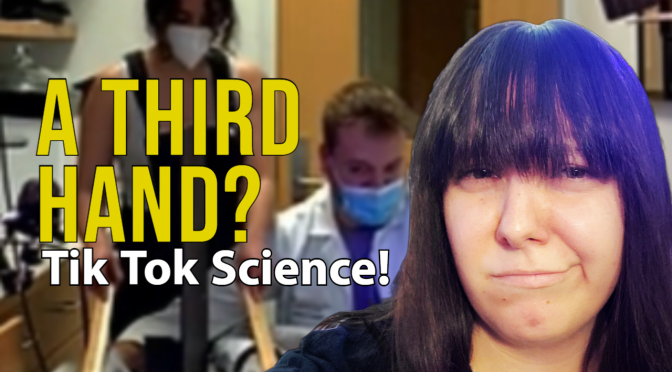
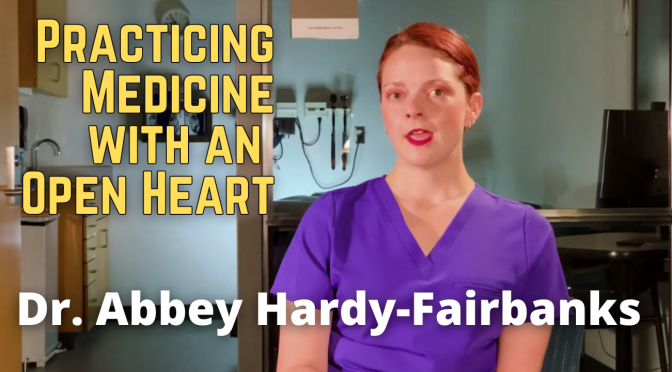
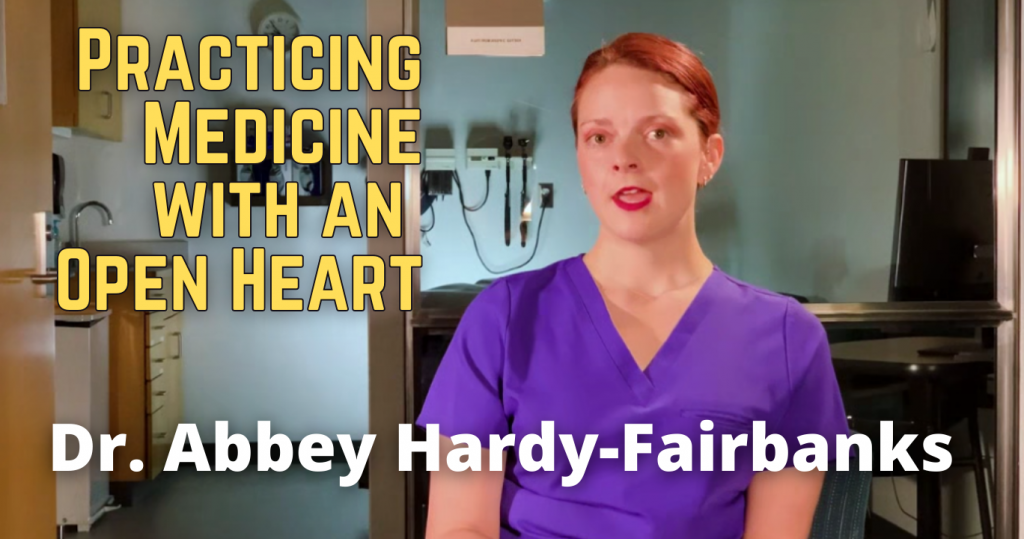
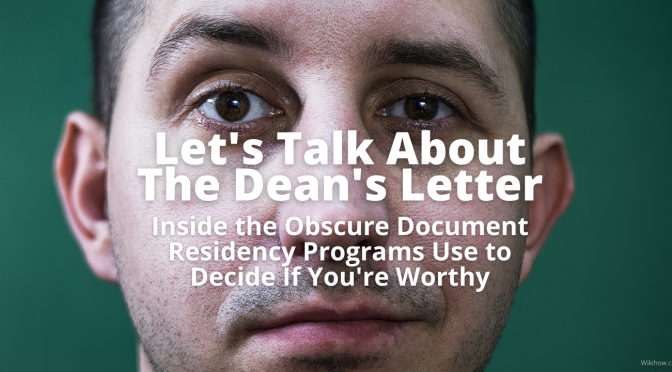
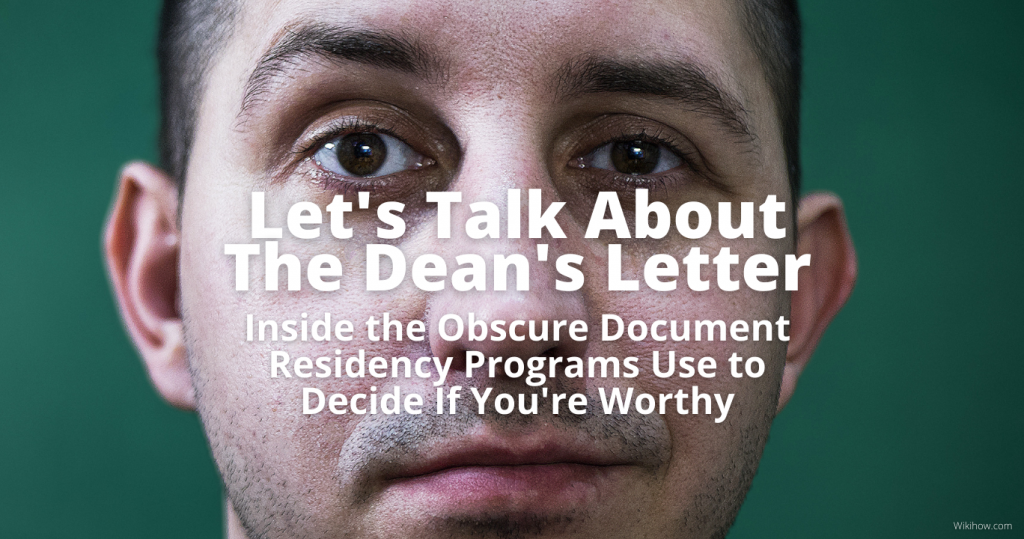
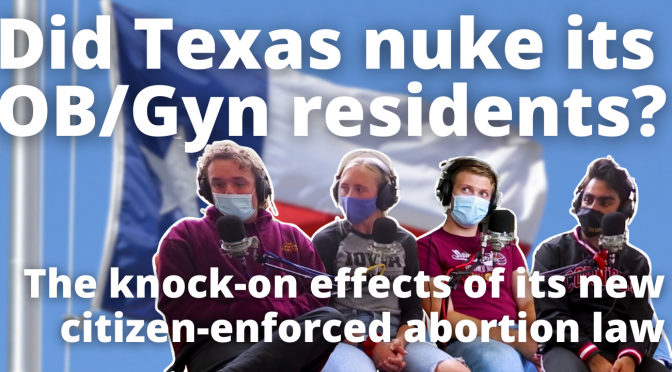
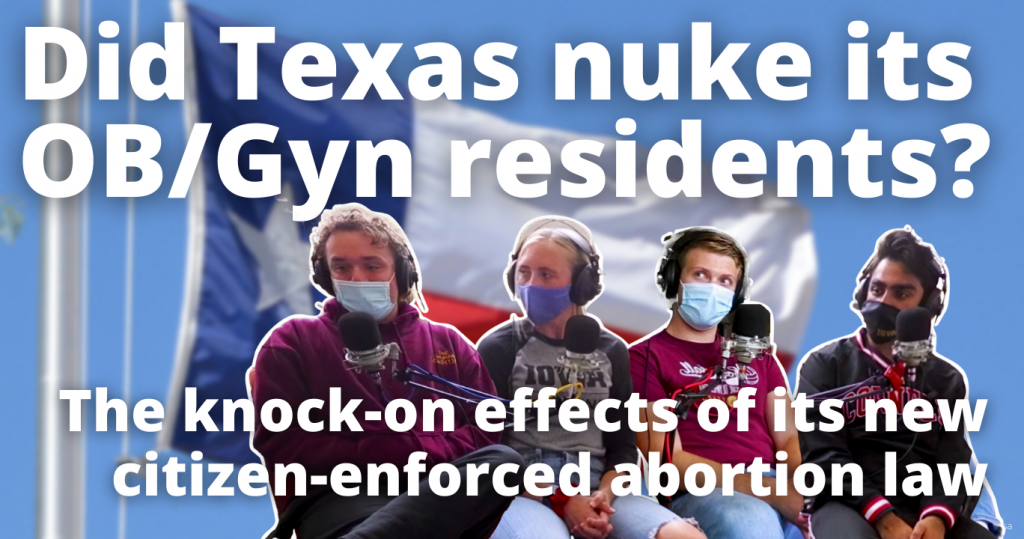
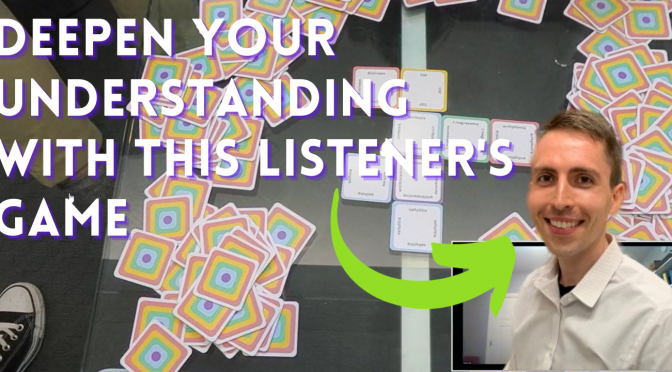
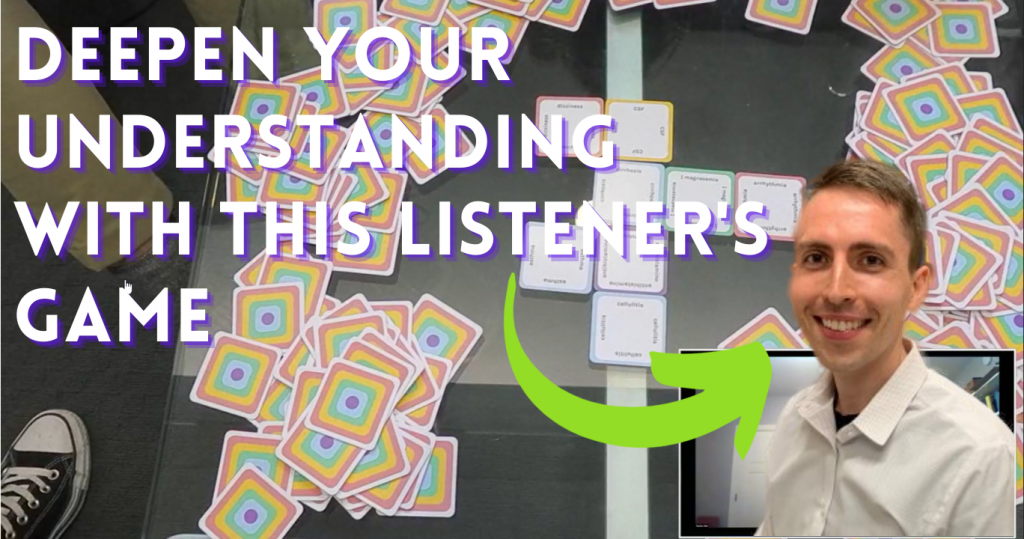

 Turkish listener Ali would like to come to the US for residency and to practice medicine someday, so he wrote to us to ask us what we knew about how that works. Co-host Nadia Wahba happened to visit Turkey a while back and blew our minds by letting us in on a little secret: that in the city she visited, there are public parks full of well-cared-for pets you can visit and play with.
Turkish listener Ali would like to come to the US for residency and to practice medicine someday, so he wrote to us to ask us what we knew about how that works. Co-host Nadia Wahba happened to visit Turkey a while back and blew our minds by letting us in on a little secret: that in the city she visited, there are public parks full of well-cared-for pets you can visit and play with.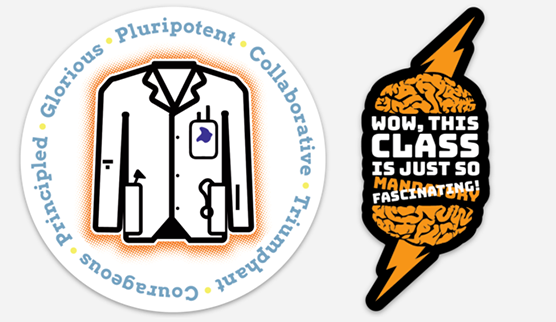
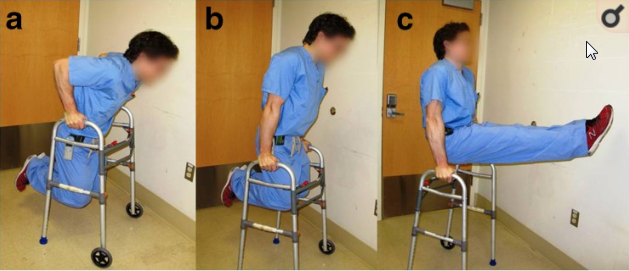
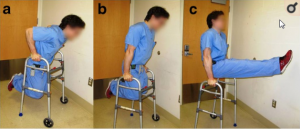
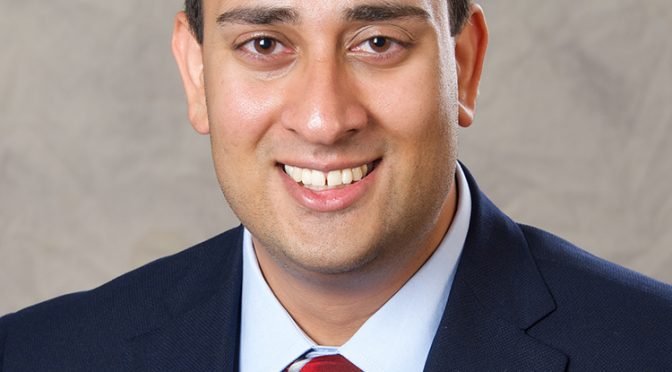
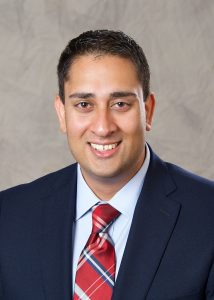

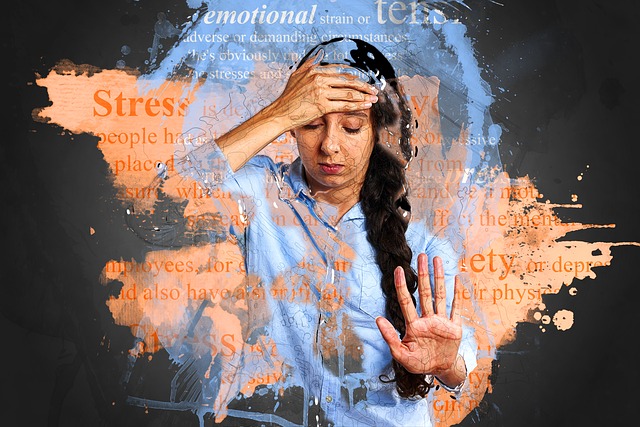 Listener Luis wrote in expressing his anxiety that his med school–which he’ll begin attending this fall–doesn’t have the prestige or programs to support his desire for a competitive specialty like ophthalmology. If that’s the case, he wondered, what can he do to increase his chances of obtaining his dream career? Fortunately for Luis, Irisa Mahaparn, Gabe Conley, Brendan George, Jason Lewis, and new co-host Andres Dajles were on hand to give Luis the advice and encouragement he needs…and a tiny dose of tough love, too.
Listener Luis wrote in expressing his anxiety that his med school–which he’ll begin attending this fall–doesn’t have the prestige or programs to support his desire for a competitive specialty like ophthalmology. If that’s the case, he wondered, what can he do to increase his chances of obtaining his dream career? Fortunately for Luis, Irisa Mahaparn, Gabe Conley, Brendan George, Jason Lewis, and new co-host Andres Dajles were on hand to give Luis the advice and encouragement he needs…and a tiny dose of tough love, too.
